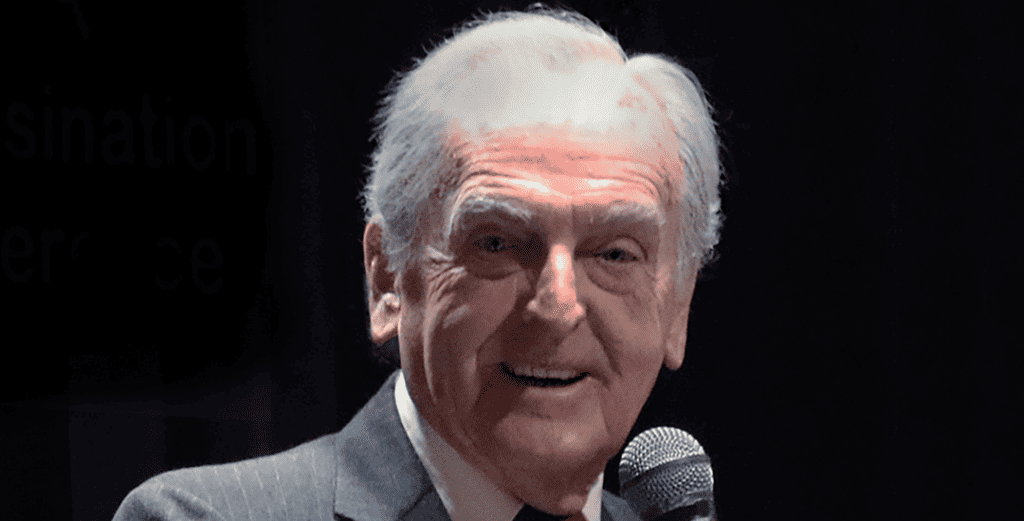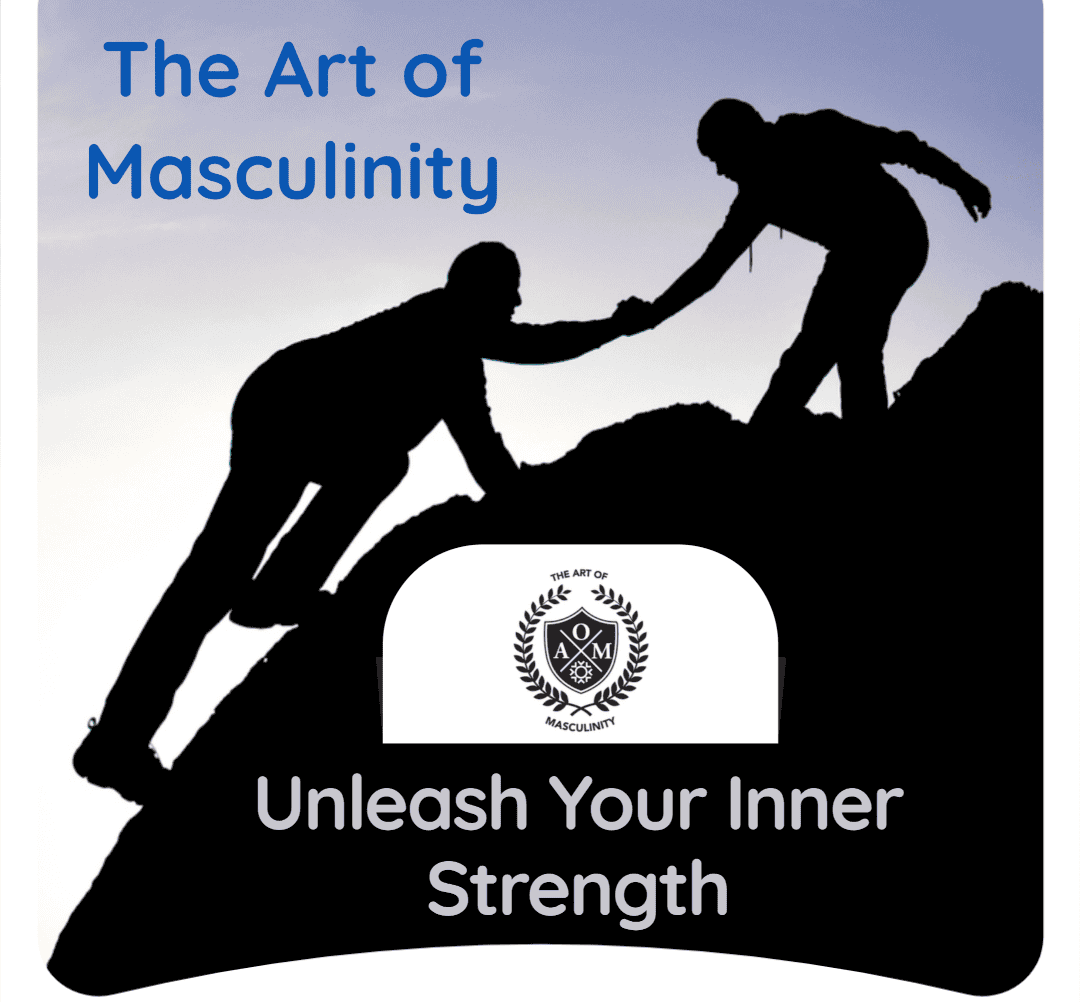Pete Hymans Staff Writer
Long-time TV personality and film critic, John Barbour, best known as creator and host of “Real People” the first reality TV show from 1979, is the producer of the new cutting-edge film “The American Media and the Second Assassination of President John F. Kennedy.” As a controversial writer/director, John won five Emmy Awards, the only person to have won Emmys in both News and Entertainment categories. He won a “Golden Mike” as the Critic-At-Large on KTTV-LA for his commentary on the 1972 Munich Olympics Massacre. His controversial 1992 documentary “The Tapes of Jim Garrison,” chronicled the insights of the New Orleans district attorney who veered from the official narrative that Lee Harvey Oswald killed JFK.
I first met John when I was invited to be the event photographer at a JFK Assassination conference in Dallas in 2017. Having submerging myself in studying the assassination of President John F. Kennedy and the subsequent change in our nation’s way of being, I have come to own nearly 300 books and corresponded and visited with people to qualify me as a “junior expert” on the JFK topic. At the event, when I first had eye contact with John Barbour (a long-time friend on Facebook) and introduced myself, he replied, rather halfheartedly, “Nice to meet you, Peter.” I said “John, I am Peter Hymans from Facebook, and he broke into a grin and gave me a big hug. After photographing John at the conference and witnessing the first pre-screening of his film, John hired me to photograph the premiere showing of his film in Beverly Hills where this interview took place.
The Interview:
Recorded at the Beverly Inn, Beverly Hills, CA – May 25, 2017
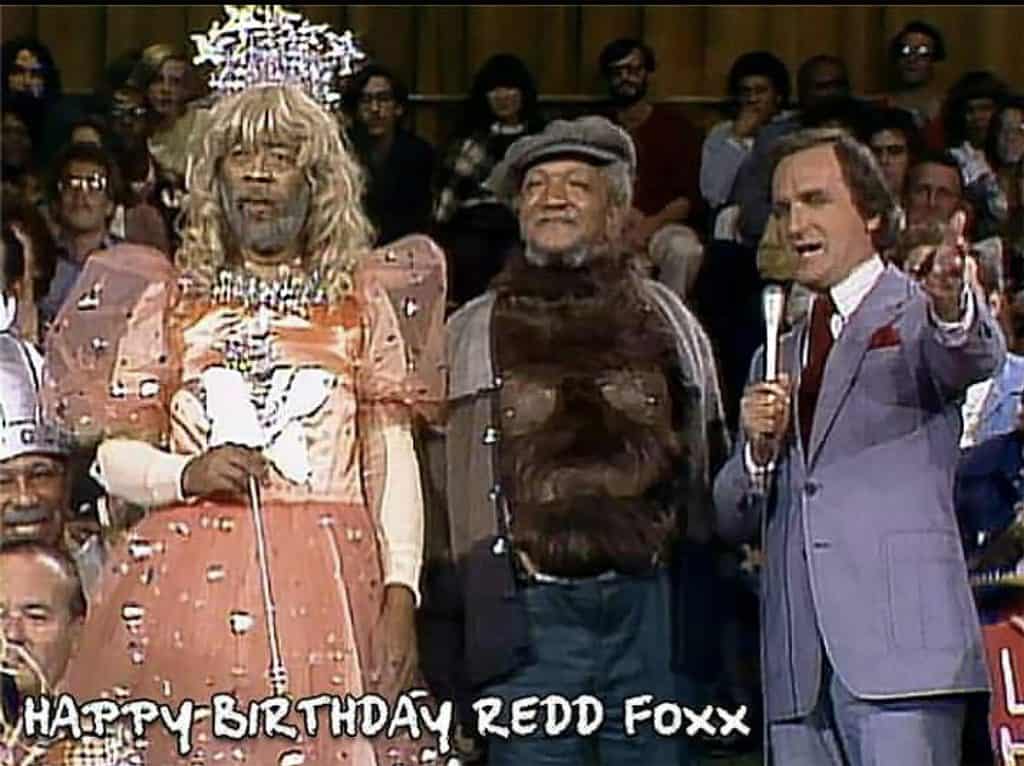
Pete Hymans: Good morning John and thank you so much for your time to do this interview for MDI’s Legacy Magazine. To help you understand us better, here is the Mission of MDI: “To cause greatness by mentoring men to live with excellence and as mature masculine leaders, create successful families, careers and communities.”
John Barbour: Wait a second! You’re talking to the wrong guy! I don’t know how to tell anybody how to live; I only know how I try to live. And, you’re talking about “masculine” and “male.” That almost sounds misogynistic and why would you want to talk about men?
PH: Sometimes, in some areas of life, we don’t have a choice. As men, there are attributes and ways of being, which help us perform best in society. In our men’s circles we often say; “If six men call you a horse; you’d better buy a saddle.”
JB: (Chuckles) Interesting you mention a horse and saddle: there’s a 10,000-year old Persian proverb that says;
“If you are going to tell the truth, you’d better have one foot in the stirrup.”
PH: (Laughs) John; what is your full name and is there any back-story to it?
JB: My father, who was some kind of hustler, added the name “Maclaren” to his proper surname, “Barbour”. The story goes that father wanted a job as a writer and he used the name of Ian Maclaren–a famous Scottish writer–claiming to be his son. Evidently investigative reporting was not one of the high skills of the Toronto Star newspaper: they hired him as a columnist! Somehow some of father’s pizazz and writing skill rubbed off on me. And … I didn’t have the foggiest idea I could write until I was over 30. If you go to my schools in Toronto looking for “John Barbour,” you won’t find him. You will find “John Maclaren.” If you go to the Toronto Police Department, seeking to find arrest pictures of “John Barbour,” you’ll fail. You will find arrest pictures of “John Maclaren.”
PH: What about your childhood?
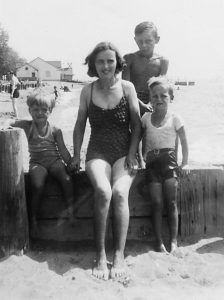 JB: I came from a very dysfunctional family in Toronto. I was born in a Salvation Army Charity Hospital. In fact, the first sound I ever heard is likely to have been a tambourine. My family would have to have improved to be considered “a mess.” I only knew my father until I was around sixt years of age. In 1939, he abandoned us for the peace and quiet of World War II. So, my role models were not my father; he wasn’t there.
JB: I came from a very dysfunctional family in Toronto. I was born in a Salvation Army Charity Hospital. In fact, the first sound I ever heard is likely to have been a tambourine. My family would have to have improved to be considered “a mess.” I only knew my father until I was around sixt years of age. In 1939, he abandoned us for the peace and quiet of World War II. So, my role models were not my father; he wasn’t there.
My mother was an alcoholic nymphomaniac. She brought home about 15 “uncles” – I had more uncles than anyone ever had. And they always used her for a punching bag. I was constantly jumping out of the window to bring home the police. I instinctively sought out a male example to follow and my masculine role models were all in the movies.
I had no real home to go to in Toronto. I could, however, go into the Manor Theater and watch a double feature for a nickel. There it was Jimmy Cagney; it was James Stewart; it was John Wayne. All of these people…Orson Wells…they became my male models. The sad thing is; most of it was fictitious. But, my mind could not distinguish between fiction and reality. I was just a kid and they knew stagecraft better than almost anyone today. That’s where I spent most of my time. “Mister Smith Goes to Washington.” That was wonderful; I was just a kid and here’s a guy speaking up for truth!
To this day, I still have tears in my eyes when I see Robert Donat in “Goodbye Mr. Chips.” The youth of today – who do not watch those actors and films I saw as a boy – are missing out on something really good.
PH: Any particular movie star who stands out?
JB: I would say that Robert Donat stood out the most. And, following him, it would be Richard Burton. Burton was, by far, the greatest English speaking actor; he gave that up – to become a celebrity – when he married Liz Taylor. You know, Sir Lawrence Olivier even sent Burton a note asking if he wanted to be an actor or a star. Burton gave me chills in his role in “The Prince of Players.” Of course, Orson Wells should be in that class too because of “Citizen Kane.”
PH: And where does Marlon Brando stand?
JB: Without a doubt, Brando was the most brilliant actor for portraying negative personalities. “Viva Zapata” is a performance for all time. “On the Waterfront.” “The Godfather,” That Godfather role was offered to Orson Wells; he turned it down. So, Brando stuffed Kleenex up his nose and won Best Actor in 1973. Did you know, he only got $35,000 for his role? That film is a masterpiece of storytelling because you are rooting for killers. But when Brando tried to play a lighter character; he was just dreadful. Finally, the best actor ever on the screen was Cary Grant. There was nothing that actor couldn’t do. There’ll never be another Cary Grant …That society is long gone.
PH: What about books and reading?
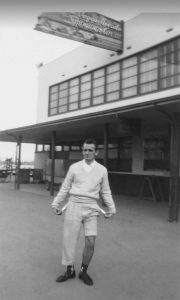 JB: Freud said; “You have to love something in order to survive. I learned to love my brain. I loved to read. Why? Because instead of having a real life it was through books I could experience people who had lives. I have always been a story teller – as an actor or a comedian; whether I was a director or a writer. Bette Davis said; “You’d better love your work because you can lose your family; you can lose your job; you can lose your friends but you are always going to have the work you are passionate about.” So, I have loved my work and defended my work all my life. My work became my family. Joseph Campbell in his book “The Power of Myth” said that if you follow your joy, things will open up in the universe, as if by magic. I am not religious, Pete, but I have to say that when I follow my joy, things open up for me.
JB: Freud said; “You have to love something in order to survive. I learned to love my brain. I loved to read. Why? Because instead of having a real life it was through books I could experience people who had lives. I have always been a story teller – as an actor or a comedian; whether I was a director or a writer. Bette Davis said; “You’d better love your work because you can lose your family; you can lose your job; you can lose your friends but you are always going to have the work you are passionate about.” So, I have loved my work and defended my work all my life. My work became my family. Joseph Campbell in his book “The Power of Myth” said that if you follow your joy, things will open up in the universe, as if by magic. I am not religious, Pete, but I have to say that when I follow my joy, things open up for me.
PH: How would you consider yourself as a leader?
JB: I’m not a leader! If you do something interesting that people like, they will follow you. It doesn’t mean that I say; “Hey, follow me!” I don’t … I do what I do because it pleases me. I’m not doing this JFK-Assassination-Media film because I am a truth seeker. I love my brain and sometimes what comes out of it; I don’t even know. When I am at my best, I open my mind and take dictation of what comes to me from the universe. I cannot explain it. I don’t expect others to understand.
I wrote the script for my new film in about a week. Sometimes, I look at some of the stuff I’ve written in the past. I don’t even recognize it and wonder, “Where did it come from?” It just pours out. It is not like a talent; it is like channeling and I don’t even know if I believe in that stuff. But I just experience it with myself. That’s all. If I tried to lead, especially without inspiration, I’d lay an egg for sure. Nikola Tesla and Stephen King referred to something like a “stenography of the divine.” I am not alone in that ethereal experience.
PH: What about leaders?
JB: As social creatures, we need leaders. Right now, we have no leaders. Since November 22, 1963, the world has been awash with facts showing that Jim Garrison solved the case of President Kennedy’s murder, which, by the way, is still an open murder case in the state of Texas. There are no leaders left in this country to take this still-open murder case to the Justice Department. The people need a shepherd, and there are only two people in this country who could do that right now. Oliver Stone is one because he is famous; In a culture of celebrity, Stone’s a famous director who might bring 10 or 20 thousand people to Washington. Dr. Cyril Wecht might be able to bring 5,000 people to Washington. But the people are not going to Washington on their own en masse. They murdered Dr. Martin Luther King not because he was solving the garbage strike in Memphis. Hell, King was going to get a million people to march on Washington and end the Vietnam War.
What a lot of people do not know is that William Pepper, acting as an attorney for the King family took the federal government to court for conspiracy in the murder of Martin Luther King and won the case. It was never reported. Why won’t the press let this information out?
PH: What about the leaders and the media?
JB: When I interviewed Jim Garrison on “The Morning Show” in 1970, he said, “Do you know that the Harris Poll today says that 81 percent of all Americans do not believe that Oswald acted alone, or even did it. And yet when they are asked, would they like a new investigation, only 23 percent said yes.” So, he asked me on the phone; “What does that tell you about Americans?” And this response just, as if by magic, popped out of my mind:
“Mr. Garrison, I know what my mother and father did in the alley; I know what my mother and father did in the bedroom or on the floor, in the kitchen, in the basement or on the stairs, to conceive me. But don’t ever tell me my mother is not a virgin!“
PH: Do you think that leadership is done by intent or is it a gift or a circumstance?
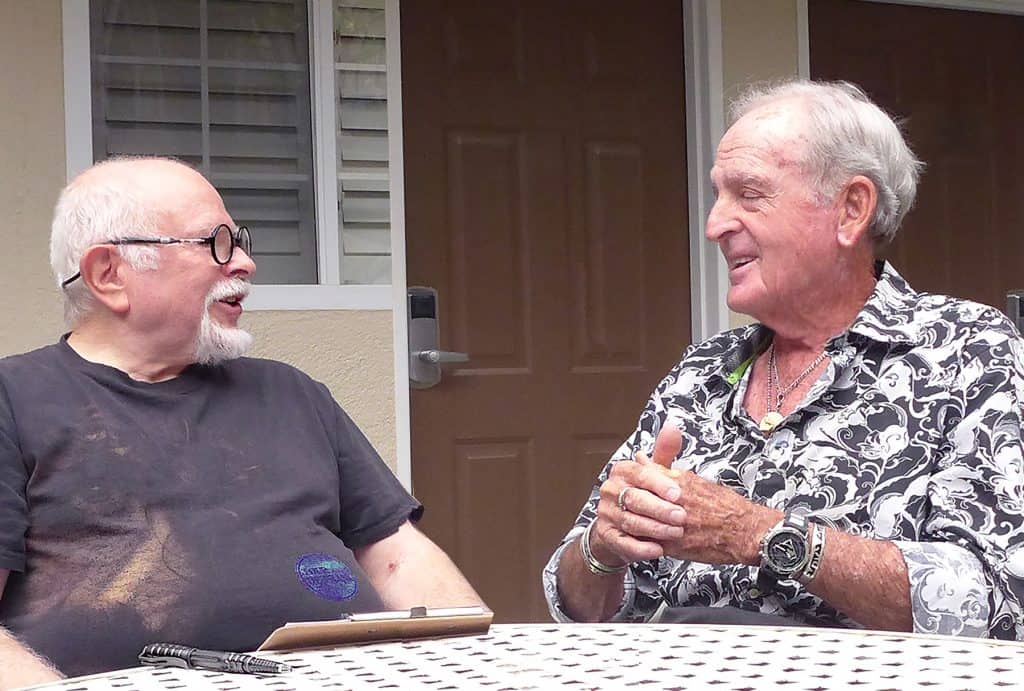 JB: If leadership is done by intent it is psychotic. They are filling an emptiness in their lives because they wish to control others.
JB: If leadership is done by intent it is psychotic. They are filling an emptiness in their lives because they wish to control others.
People are not reasoning creatures at all. We are heirs to all of this information coming in from around us; since we have all this information and we have a mind and we reason. Why are we not ALL Jews or Catholics or atheists or Republicans or Democrats? We are not because we are formed emotionally, long before our mind is formed. We only use our minds to justify our emotional make-up and our emotional prejudices. The reason I am the most open minded person I know is because I have absolutely no beliefs. A belief is an invention. It’s not a fact. Ninety-nine people out of 100 do not have an open mind, even though they may pride themselves for being open-minded.
You know the critics of the L.A. Times today absolutely savaged my film. They decimated the film but did NOT ONCE refute one of the hundreds of facts in the film. All they did was pick on me as being a curmudgeon with a grudge. Well I do have a grudge. An element of the Central Intelligence Agency murdered our president. The media is proven to have protected the known killers. I have a grudge against that. And you know how clear that fact is made in the film.
PH: It seems to me that when a person is attacked by the media and not his works or deeds, then the one being attacked must have hit the nail on the head.
JB: Absolutely and the L.A. Times gave glistening proof of that this morning.
PH: Now, John, what is the secret of your success?
JB: I have to say so much of it was by accident or coincidence. My love of conversation and people’s relationship with reality played into it well. When “Real People” came out in 1978, I predicted that I would shape the face of American television because of what I said – that “reality is entertainment.” To me, real people’s stories were far more interesting than anything written on the screen, except by a few rare geniuses who knew how to write. Ben Hect, Dalton Trumbo and few other, truly-excellent writers.
PH: Tell us about the show “Real People.”
JB: Real People! Again, it happened by accident. Everything great in my life seems to be happenstance. I was 46 years of age and out of work. Nobody would hire me because, as a critic, I made enormous enemies. When the film “Soylent Green” came out, I savaged the film and at the end someone said that I should say something nice about the film. So I said: “The set was absolutely beautiful; it would have been even more beautiful if they had put it in front of the actors.”
Another critic story: I had been on TV side by side with Tom Snyder and when I was asked to critique him on his last day, I said; “Tom Snyder makes it look like the news is there to present Tom Snyder.” In a lot of ways, as the result of my work as a critic I became a persona non grata.
PH: What do you have to say about fatherhood, John?
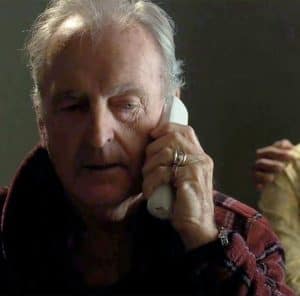 JB: I did not want to have a child; I only agreed because my wife wanted a child. I felt I owed it to her. Now, I had failed as a performer; I was not going to fail my wife, who was helping me. So, I said; “Let’s have a child.” Turned out as the greatest thing that ever happened to me! As if by magic, big things in life suddenly began jumping for me. I was 46, couldn’t get a job and I was standing on the corner of Forman and Valley Springs in Burbank. Remember everything negative that happened to me as a child. I started repeating to myself over and over: “I will correct that; I will be the best father anybody ever had.”
JB: I did not want to have a child; I only agreed because my wife wanted a child. I felt I owed it to her. Now, I had failed as a performer; I was not going to fail my wife, who was helping me. So, I said; “Let’s have a child.” Turned out as the greatest thing that ever happened to me! As if by magic, big things in life suddenly began jumping for me. I was 46, couldn’t get a job and I was standing on the corner of Forman and Valley Springs in Burbank. Remember everything negative that happened to me as a child. I started repeating to myself over and over: “I will correct that; I will be the best father anybody ever had.”
I quit Show Business on the spot, walked into the house and told my wife I’d get a job as a comedy writer. Everybody wanted to hire me as a comedy writer. Being a father was going to be my true occupation. The phone rang; it was Digby Wolfe, the creator of “Laugh-In.” The next day, while I was waiting to meet with him at Westinghouse on business, George Water walks out of his office, bumps into me and told me he had a contract. On the spot, he wrote a contract for me to do four “Real People” shows! When I asked for him to make me the producer, he declined because he did not want to be sued by another network. It was a monstrous amount of money! A year later Real People was #1 nationwide! I dug deep and asked him: “Now can I be the producer?” We were live on TV and he replied; “This shit isn’t going anywhere.” So I countered with: “Well you have nothing to lose in giving me 10 percent.” So he gave me 10 percent and that put my son through Stanford.
PH: Many boys came from grim households with abusive, neglectful, selfish parents leading to multiple failed relationships, abuse, addiction, divorce; innocent children being a “tug-o-war” rope. What should we know about you and your one marriage?
JB: I’ve had 52 years of marriage with the same woman, the wonderful mother of our son. That said, my view on conventional matrimony goes like this: There are three kinds of marriage: A happy one, a successful one and a long-lasting miserable one.
Nature is only interested in the 3 F’s: Fornicating, Feeding and Fighting. The fighting is to fornicate and feed. All else humans do is just something to do until then. Marriage with one mate is a manufactured contrivance. That has to be worked out by the two involved. Marriage starts and ends with sex. If sex is still there after a few decades, it is a rare happy marriage. If sex is not there, after awhile – and friendship remains – that is a successful marriage. If there is neither sex nor friendship … it is a mutual revenge society. This is a large minority.
PH: Many poorly-reared boys turn to drugs, alcohol, gangs or crime. Were these any points on the trajectory, which brought you to the place you are now?
JB: I never drank alcohol at all, as a reaction to seeing it destroy my mother. I did not drink a glass of wine until in my 30’s. Now I have a glass of Cabernet once a day. I do not smoke. I tried it once at age 12; it burned my eyes and I thought, “This is stupid. What must it do once inside me?” My son, Christopher, asked why I never used drugs. I told him I just always wanted to be alert. If you take drugs when you are happy, it actually diminishes the natural joy your own body chemistry pumps. And if you take drugs when you’re depressed, when they wear-off, the source of the depression has become magnified.
PH: Did you ever battle with an addiction and, if yes, how did you overcome it?
JB: I had three addictions.
- GAMBLING as a youngster … for years … until I bought John Scarne’s books on gambling. Once I learned the odds and how to do it well, I lost all interest. I was no longer emotionally involved. I have not gambled since.
- My second addiction: GOLF. I love the physical activity; being able to do it alone or with friends outdoors. I still hit a bucket of balls a day … and play once a week.
- JOKE WRITING: My third addiction still takes control of me – a few minutes every day to write jokes!!
PH: So, then … your favorite joke is?
JB: In a Comparative Governments university class a rascal-student was asked as follows:
Professor: “What’s the difference between Capitalism and Communism?”
Student: “Well in Capitalism, man exploits man. Communism it’s the exact opposite.”
PH: Earlier you described growing up fatherless. How was it being a father, yourself?
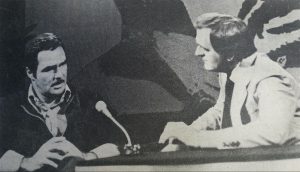 JB: There isn’t time to go into all of the great moments I shared with Christopher. Let me tell you about a golf experience we just had. Oh! About golf – I’d have to cut back to be considered a “golf junkie.” Pete; I am totally unequipped emotionally to play the game. If I hit a great shot and it takes a bad bounce, profanity just fills the air and you see people putting up “Home For Sale” signs. Last year, as a birthday gift, Chris invited me to play St. Andrews with him in Scotland! It was the most glorious experience I ever had. My son treated me like I was a handicapped kid. He was fussing all over me; it was terrific. And, it was the only four days in the last year when I was taken away from my constant obsessing about the JFK film.
JB: There isn’t time to go into all of the great moments I shared with Christopher. Let me tell you about a golf experience we just had. Oh! About golf – I’d have to cut back to be considered a “golf junkie.” Pete; I am totally unequipped emotionally to play the game. If I hit a great shot and it takes a bad bounce, profanity just fills the air and you see people putting up “Home For Sale” signs. Last year, as a birthday gift, Chris invited me to play St. Andrews with him in Scotland! It was the most glorious experience I ever had. My son treated me like I was a handicapped kid. He was fussing all over me; it was terrific. And, it was the only four days in the last year when I was taken away from my constant obsessing about the JFK film.
And the wonderful thing is: he did it on his own. I couldn’t help him because people were burning my bridges as I was crossing them. And Chris made this dream of holfing St. Andrews happen. Fortunately, Chris inherited his mother’s fabulous people personality and he got my brain and my feet.
PH: John, If you were willing to consider yourself a role model for some peop-
JB: I am NOT a ROLE MODEL OK?
PH: Let’s fantasize: JUST CONSIDER that you MIGHT BE a role model for some people, what would you say to-
JB: – I would say “Don’t beat your idols.”
PH: What would you say your core values are?
JB: I am extremely conservative personally. But I am an absolute radical politically because I can see all of the injustices around us and I see that America is in absolutely dreadful, dreadful shape. I listened to John Kennedy’s speeches for hours while I was putting together my film. What glorious language; he always spoke about peace; he always talked about the future.
Not one candidate has talked about the future or talked about peace. It was all about the past! “Restore America to greatness? When was America ever great? If you look under the veneer of America, I mean; are there any rights for women? Are there any rights for minorities? People had to march. They had to go onto the streets to get the rights that were promised to them.
PH: Could you perhaps distill this down into some all-encompassing words like integrity or patience?
JB: Pete, all I could say to anybody is: “Don’t do anything that hurts someone.” Now, as a critic I obviously hurt a lot of people’s feelings but I never hurt them physically.
PH: What is your purpose?
JB: I don’t know what my purpose is! My purpose is that I love what it is that I am doing. I am so lucky. I look back at it and my life, my past, it’s totally unplanned. I mean I was taken out of this country in chains when I was 17 years of age! I was deported for crying out loud! I was kicked out a second time and then spent hours in a law library trying to figure out how to get back into the United States legally. And eventually I did that. But of course I had help. Somebody (Ken Kragan) wrote a book on show business; “Life is a Contact Sport.” You cannot do it all on your own. You are given a life but only you can give it a purpose.
PH: Helicopter up, hover and look at “John Barbour” as a concept or a project. What would you say your legacy might be?
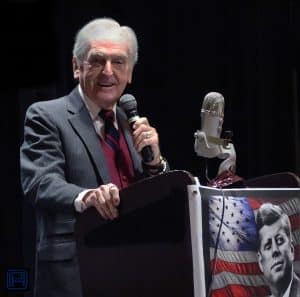 JB: I would have to say the biggest legacy I will leave is my film; “The American Media and the Second Assassination of President John F. Kennedy.” It is THE DEFINITIVE DOCUMENTARY about the murder of John Kennedy by elements of the Central Intelligence Agency. That, I am thrilled with. It will not do well in theaters or the mainstream media. But on the internet, I can foresee thousands upon thousands of copies selling for about $4. My film is going to be the victory over the mainstream media. And, it is going to be the underground that does it. It’s going to be the alternative media that does it. It is going to be social media that does it for this film, as social media” helped Donald Trump in the election.
JB: I would have to say the biggest legacy I will leave is my film; “The American Media and the Second Assassination of President John F. Kennedy.” It is THE DEFINITIVE DOCUMENTARY about the murder of John Kennedy by elements of the Central Intelligence Agency. That, I am thrilled with. It will not do well in theaters or the mainstream media. But on the internet, I can foresee thousands upon thousands of copies selling for about $4. My film is going to be the victory over the mainstream media. And, it is going to be the underground that does it. It’s going to be the alternative media that does it. It is going to be social media that does it for this film, as social media” helped Donald Trump in the election.
PH: If you had one thing you would like to tell those who experience this interview, what would that be?
JB: Simply this: Go see “The American Media and the Second Assassination of President John F. Kennedy.” Do not let anyone – except me – tell you what a terrific film this is or tell you that I am a curmudgeon. In many respects, I am a curmudgeon. But no matter what you think you know about that film, when we have David Lifton, a blockbuster author and Jim DiEugenio, today’s most adept critic of the JFK Assassination, saying that my film is the definitive work about the media’s sleight of hand, relative to JFK’s assassination, take the opportunity.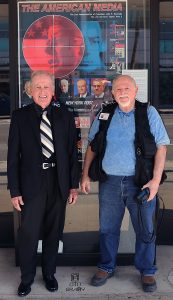
Go see it.
John Barbour’s Film is available on Amazon for $1.99 to watch and $4.99 to own. Link HERE
